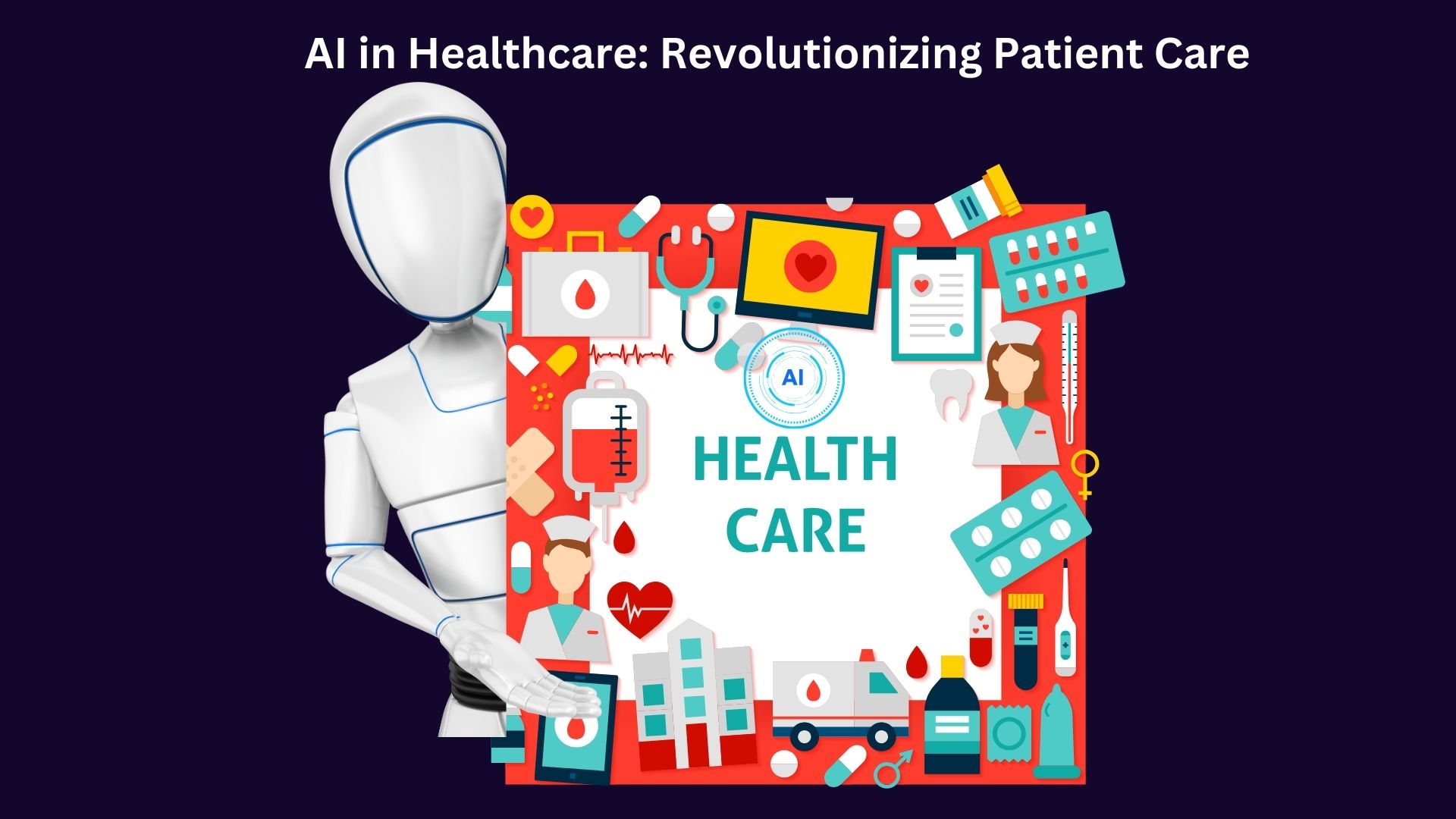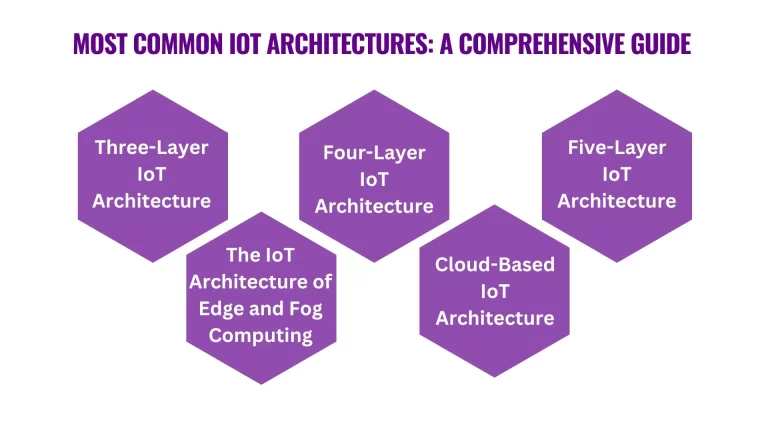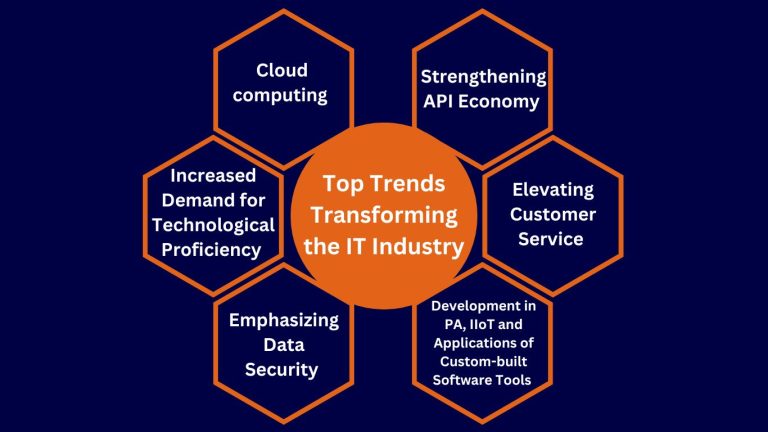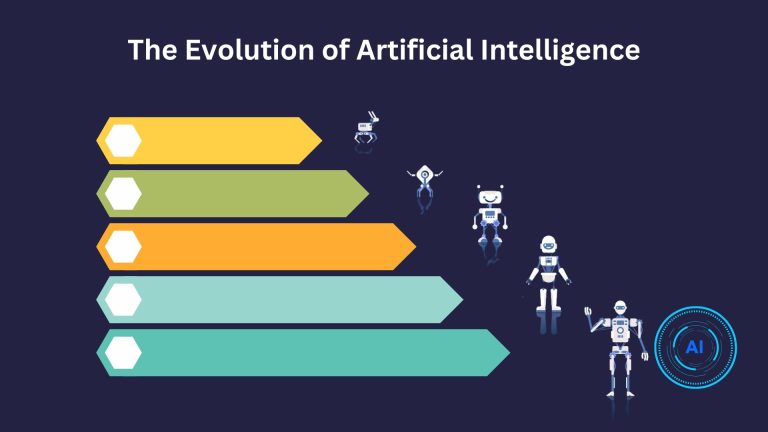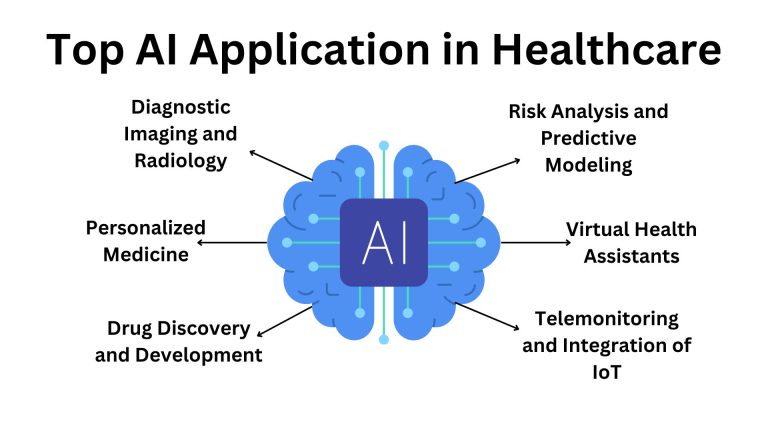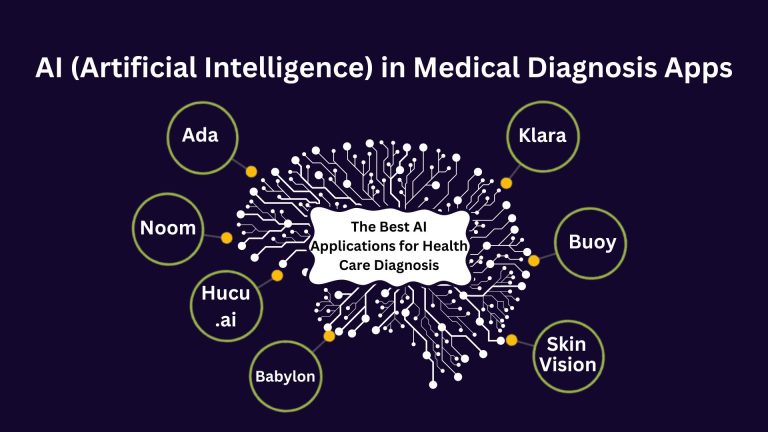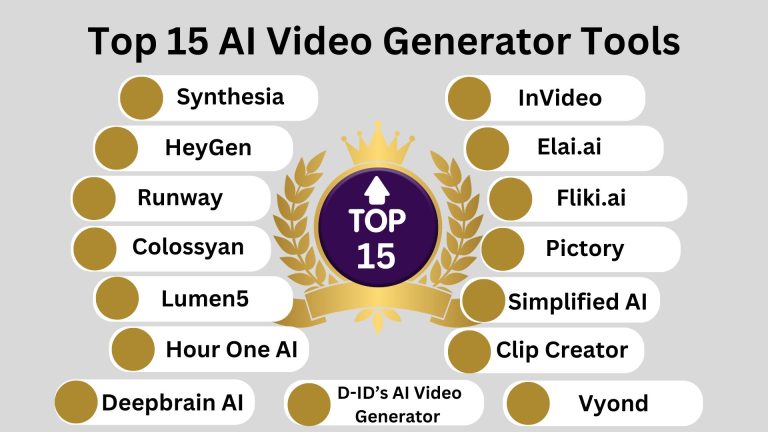Artificial Intelligence in Healthcare : Revolutionizing Patient Care and Treatment in 2024
This article aims to explore the revolutionizing impact of Artificial Intelligence in healthcare industry with a special focus on the impact of patient care. The AI tools help in the early detection of diseases and also in the identification of risk factors hence improving the quality of the patient’s health and at the same time making the health care solution cheaper. It helps in the formulation of individual patient treatment plans since the machine learning algorithms use the patient’s information to come up with the right intervention to be used on the patient in a way that will enhance its efficiency and reduce side effects.
Healthcare decision support systems that are based on AI enhance healthcare processes by offering relevant information on patient information and clinical best practices in real time. Artificial intelligence in healthcare contributes to remote monitoring of patients since it is possible to monitor patients’ vital signs, detect early signs of health complications, and then intervene. This article also discusses issues and concerns connected with the implementation of AI in healthcare sector.
The application of artificial intelligence can be one of the biggest discoveries in the medical field of the last century and these are real applications of Artificial intelligence in Healthcare
Artificial Intelligence in healthcare is expected to rise CAGR of 40%. Analyses indicate that the overall worth of AI in healthcare is set to increase up to $200 billion by 2030. Artificial Intelligence in healthcare is trending topic in current era .
Artificial Intelligence in Healthcare : Improved Diagnosis
Deep learning models are used to enhance diagnostic accuracy in imaging and pathology. These models can handle large amounts of data, and quickly collect and analyze information that is important to the model. Through this fine-tuned stream of data, doctors and other healthcare givers will be able to diagnose and treat the patient efficiently and effectively.
In late 2020, an Intermountain Health care study showed a 36 percent relative reduction in 30-day mortality among pneumonia patients. This was made possible due to the enhanced data-processing feature of the AI app that helped clinicians pick out relevant information for diagnosis.
Personal Patient Engagement and Education
It is possible to improve the level of patient involvement and provide them with targeted health-related information and materials. Virtual health coaches powered by AI can help patients manage their treatment plans, give them suggestions regarding their lifestyle changes and help them develop healthier habits thus making the healthcare experience more patient-centered. These are Top Artificial Intelligence in Healthcare Applications for patient engagement and Education applications .
Top personal patient engagement and Education applications
- MyChart by Epic
- PatientPoint
- HealthTap
- Wellframe
- CarePaths
- MedBridge
- Twine Health
- GetWellNetwork
- Vivify Health
- PatientWisdom
Remote Patient Monitoring
Smartwatches and other wearables with AI algorithms can constantly track and report changes in the patient’s physiological indices. This real-time monitoring enables early intervention, hence, the chances of complications and hospital re-admissions are minimized. These are Top Artificial Intelligence in Healthcare Applications for Remote Patient monitoring.
Top 10 remote patient monitoring applications
- Medtronic Care Management Services
- Teladoc Health
- iHealth
- Vivify Health
- AMC Health
- Health Recovery Solutions (HRS)
- BioTelemetry (a Philips company)
- CareSimple
- eVisit
- Resideo Life Care Solutions
Predictive Analytics in Health Care
AI’s predictive analytics features are helping healthcare workers move from a reactive to a proactive model of treatment. AI in the form of big data can analyze the past data of patients and help in the early diagnosis of health problems. This enables healthcare providers to put measures that can help in preventing health issues hence freeing the emergency services and enhancing the lives of the patients.
Artificial Intelligence in Healthcare : Applications
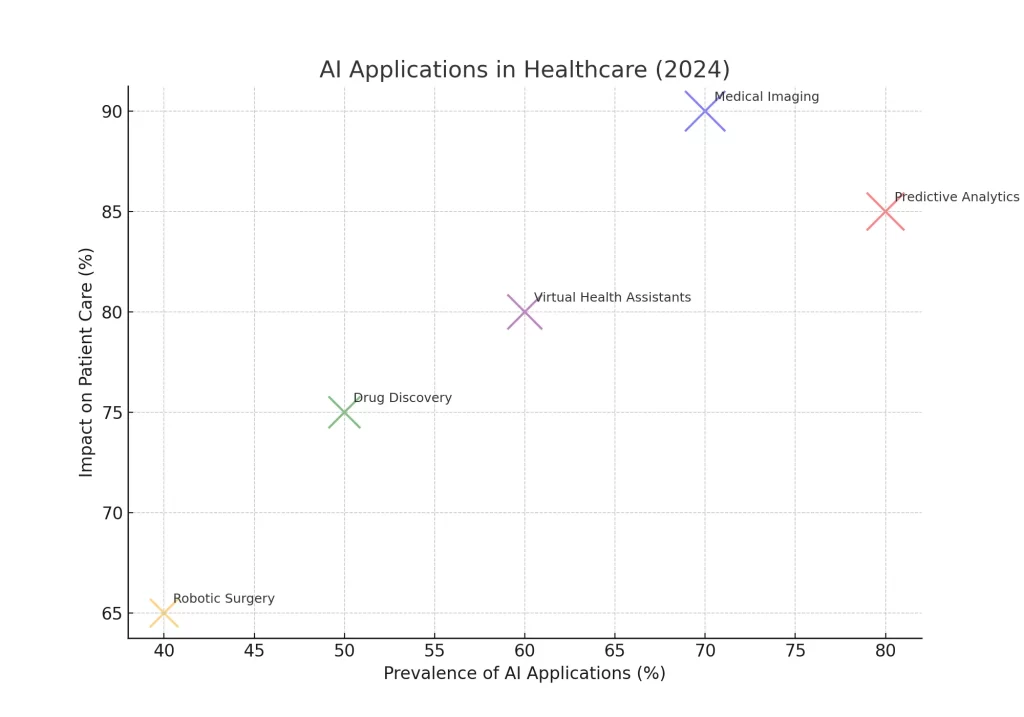
Benefits of Artificial intelligence in healthcare for Patient Care
Enhanced Efficiency
It helps to minimize time-consuming operations ultimately healthcare professionals can focus on the more important aspects of the patient’s treatment. It will enhance operational efficiency and decrease the likelihood of errors commonly linked to manual processes.
Timely Interventions/Medication
Its real-time analysis and monitoring are essential for timely management especially when the situation is pressing/stressed. This is vital for patients with chronic conditions or those at risk of sudden health deterioration, with the potential to save lives.
Improved Decision-Making
AI empowers healthcare professionals with vital insights, allowing for more informed decision-making.
Challenges and Considerations
The benefits of AI in the treatment of patients are obvious, but it is also necessary to keep an eye on or discuss the problems of AI implementation.
Data Security and Privacy
One of the major issues that arise from the use of AI systems in patient handling is the security and privacy of patient information. There is a need to enforce strict measures of security to ensure that the health information of patients is not accessed by the wrong/bad people.
Ethical Considerations
The use of AI in the healthcare sector requires a critical approach to the ethical questions, which are connected with algorithmic prejudice and the problem of the patient’s data usage. It is important to set up ethical frameworks and policies that can govern the use of AI technologies.
Integration with Existing Systems
Integrating AI into the existing structures of healthcare may also be challenging and needs to be done strategically with optimization. Some of the risks that need to be mitigated to avoid any hitches during the adoption of AI include compatibility problems and the need to train the healthcare staff/workforce.
Conclusion
The use of AI is going to revolutionize healthcare and create new possibilities to advance the quality of treatment, increase productivity, and advance medical science. Looking into the future of AI in the healthcare industry there is great potential for change and innovation. AI is transforming patient care in ways that have never been possible before, from improving diagnostic results to enhancing successful patient treatment plans and even monitoring the patient’s condition in real-time. Given the rapidly growing prospects for the healthcare AI market, it is crucial to identify the advantages, limitations and potential risks of using this technology to transform the healthcare/patient care system and improve outcomes.
Artificial Intelligence in healthcare Application

